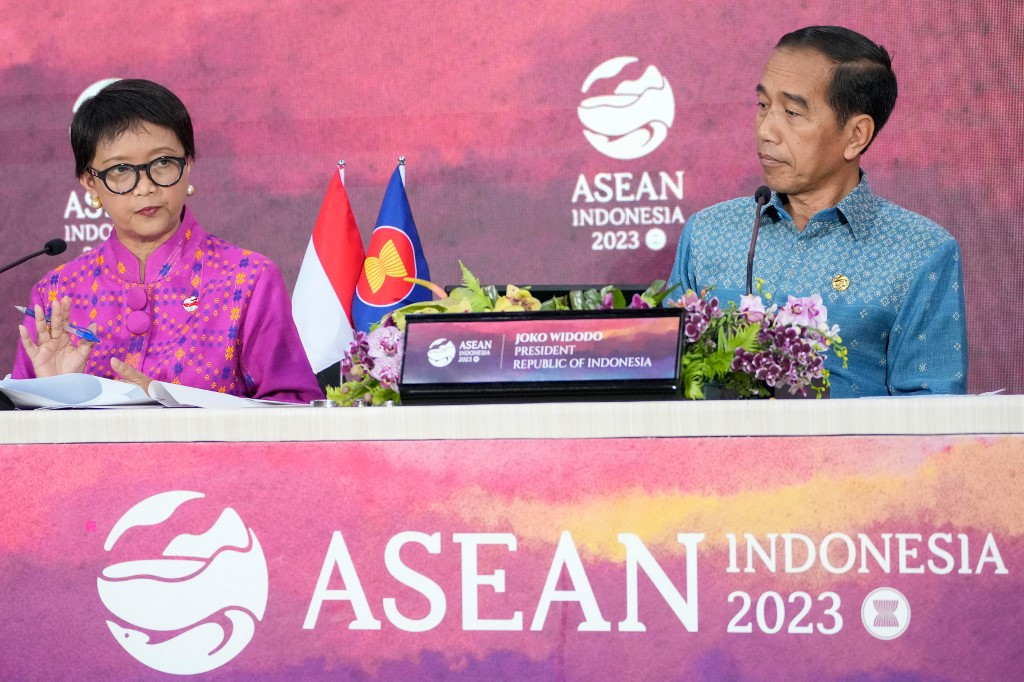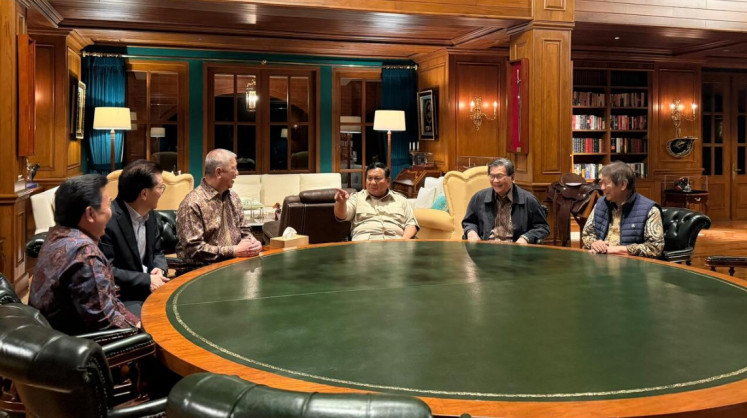Popular Reads
Top Results
Can't find what you're looking for?
View all search resultsPopular Reads
Top Results
Can't find what you're looking for?
View all search resultsASEAN matters, but how much?
More than two years since the Myanmar military overthrew the country’s democratically elected civilian government, ASEAN has yet to make a dent in changing the situation on the ground. If anything, the conflict has gotten worse, with signs of even more brutal suppression by the junta.
Change text size
Gift Premium Articles
to Anyone
T
urning ASEAN into the “epicentrum” of growth for the global economy and establishing its “Vision 2045” are the central goals of Indonesia’s chairmanship of the bloc this year under the broad tagline “ASEAN Matters”.
The resort town of Labuan Bajo in East Nusa Tenggara served as a picturesque backdrop for ASEAN leaders to meet and hammer out ideas this week. But beyond the joint declarations and other documents that came out of the summit, we need to ask if ASEAN really matters to the peoples it purports to represent, and if so, how.
Typical of the bloc, the two-day summit largely avoided addressing tough questions in favor of quick wins, although we must give credit to Indonesia for putting the civil war that has engulfed member country Myanmar in sharp focus, even though overall progress remains slow.
After all, why get bogged down by an issue no one can resolve overnight, some have asked, and why not discuss topics that everyone can all agree on? It is a tempting thought, but as long as Myanmar is a member state and as long as its crisis is unresolved, it will be hard to expect ASEAN to make any real progress elsewhere.
More than two years since the Myanmar military overthrew the country’s democratically elected civilian government, ASEAN has yet to make a dent in changing the situation on the ground. If anything, the conflict has gotten worse, with signs of even more brutal suppression by the junta.
An airstrike at a village in the country’s Sagaing region last month that killed 186 people, including 40 children, was not enough to move ASEAN and the international community to take action beyond standard condemnations. ASEAN’s humanitarian aid is only beginning to be distributed in Myanmar, and even then, the bloc’s diplomats were shot at by unknown gunmen earlier this week.
Indonesia disclosed last week that it had been holding talks with some opposition groups in Myanmar since the beginning of the year as part of its efforts to broker peace in Myanmar. This is commendable, but Indonesia needs to share this information with a number of other important parties, including countries and institutions that are carrying out work in Myanmar. Indonesia may call it “quiet diplomacy”, but others see it as a lack of transparency.
It is not only the Myanmar people who may feel that ASEAN has little relevance in their lives. People in the other nine member states have the right to ask how ASEAN matters to them. Surveys in the past have shown that ASEAN has barely touched people’s lives and that most people feel very little connection to the work of the organization.
The ASEAN community project is a prime example of governments failing their own people. Officially launched in 2015, the program quickly postponed its target of forming a closer bloc-wide community to 2025. And even that appears to have been overly ambitious.
This is not to deny the valuable work that ASEAN has done, but the lack of a sense of community among the peoples of the region suggests the limits of ASEAN’s reach in its current incarnation.
Now under Indonesia, the bloc has set the foundation for a new vision for 2045 and an even more ambitious goal of turning Southeast Asia into an epicenter of economic growth. How does ASEAN plan to pull this off with the ongoing civil war in Myanmar? Will that thorn in the bloc’s side, that source of cognitive dissonance, not further alienate people, particularly the people of Myanmar, from the whole ASEAN project?
One noteworthy development at the Labuan Bajo summit was the attendance of Timor-Leste Prime Minister Taur Matan Ruak ahead of his nation’s formal admission to ASEAN later this year. This move will add to the 600-million-strong population of ASEAN and should serve as a reminder to governments that they need to do a lot more for their people to make ASEAN truly matter.
For now, the summit feels like nothing more than photo ops and wordy, lofty declarations that barely touch the lives of the people they supposedly represent.











